How to Extend the Lifespan of an HVAC System with Proper Maintenance
Understanding the importance of HVAC maintenance and implementing a consistent care routine can lead to substantial long-term benefits for both residential and commercial property owners.
An HVAC system is a significant investment for any property owner, playing a crucial role in maintaining comfort and air quality throughout the year. With routine care and upkeep, these systems can operate efficiently for many years, potentially extending their lifespan well beyond the average expectation. Understanding the importance of HVAC maintenance and implementing a consistent care routine can lead to substantial long-term benefits for both residential and commercial property owners.
The Importance of Regular Maintenance
Routine upkeep is the cornerstone of HVAC longevity. A well-maintained system operates more efficiently, consumes less energy, and is less likely to experience unexpected breakdowns. Routine checks and servicing can identify potential problems before they escalate into major concerns, saving property owners from expensive repairs or premature system replacements. Additionally, maintaining the system at peak performance helps maintain indoor air quality and consistent comfort levels throughout the property.
Key Components of HVAC Maintenance
Air Filter Replacement: One of the simplest yet most crucial upkeep tasks is regularly replacing or cleaning air filters. Clogged filters restrict airflow, forcing the system to work harder and potentially leading to overheating or freezing. Clean filters improve efficiency and enhance indoor air quality by trapping dust, allergens, and other particulates.
Cleaning Coils and Fins: The evaporator and condenser coils can gather dirt and debris over time, reducing their ability to transfer heat effectively. Regularly cleaning these components helps maintain optimal heat exchange and system efficiency. Similarly, straightening bent fins on the outdoor unit can improve airflow and overall performance.
Checking and Adjusting Refrigerant Levels: Proper refrigerant levels are essential for efficient cooling. Low refrigerant can indicate a leak, which reduces efficiency and damages the compressor. A local HVAC expert can check and adjust refrigerant levels as needed, as well as identify and repair any leaks.
Lubricating Moving Parts: Various components within the HVAC system, such as fan motors and bearings, require regular lubrication to reduce friction and prevent wear. Proper lubrication can lengthen the life of these parts and reduce energy consumption.
Inspecting and Cleaning Ductwork: Over time, ducts can gather dust, debris, and even mold, which can alter air quality and system efficiency. Regular inspection and cleaning of ductwork can improve airflow and maintain indoor air quality.
The Role of Professional Maintenance: While some upkeep tasks can be performed by property owners, regular professional servicing by a local HVAC expert is essential for comprehensive care. Expert technicians have the knowledge and tools to perform detailed inspections, find potential issues, and make necessary alterations or repairs.
Seasonal Maintenance Recommendations
Spring and Fall Check-ups: Scheduling bi-annual maintenance in the spring and fall prepares the system for heavy use during the summer and winter months. These check-ups allow technicians to address any issues before the peak seasons, reducing the risk of breakdowns when the system is needed most.
Summer Care: During summer, keeping the area around the outdoor unit clear of debris and vegetation helps maintain proper airflow. Regularly cleaning or replacing filters is particularly important during high-use periods.
Winter Preparation: Before winter, having a professional inspect the heating system, including checking for carbon monoxide leaks and confirming proper burner operation, is crucial for safety and efficiency.
Energy Efficiency and System Longevity: Maintaining an HVAC system extends its lifespan and significantly impacts energy efficiency. A well-maintained system needs less energy to operate, resulting in lower utility bills and a reduced carbon footprint. Regular maintenance helps the system maintain its original efficiency rating, preventing the gradual decline in performance that occurs with neglected systems.
Upgrading Components for Enhanced Performance: As systems age, upgrading certain components can breathe new life into the HVAC system. Installing a programmable or smart thermostat, for example, can improve temperature control and efficiency. Similarly, upgrading to more efficient fan motors or adding zone control systems can enhance overall performance and extend the system's useful life.
Recognizing Signs of Wear: Even with diligent maintenance, HVAC systems can eventually show signs of age. Being aware of indicators such as increased energy bills, uneven heating or cooling, unusual noises, or frequent cycling can help property owners address issues promptly. A local HVAC expert can assess whether repairs or replacement is the most cost-effective solution based on the system's age and condition.
The Cost-Benefit Analysis of Regular Maintenance: While regular maintenance involves ongoing costs, the long-term benefits often outweigh the expenses. Properly maintained systems are less likely to have major breakdowns, have lower operating costs, and typically last longer than neglected systems.
Selecting a Qualified HVAC Professional: Choosing a reputable local HVAC expert is crucial for effective maintenance. Look for professionals with proper certifications, extensive experience, and positive customer reviews. A qualified technician can perform thorough maintenance and provide valuable advice on system care and efficiency improvements.
Final Thoughts
Extending the lifespan of an HVAC system needs a commitment to regular maintenance and prompt attention to emerging issues. By implementing a consistent care routine, scheduling professional check-ups, and addressing problems early, property owners can significantly prolong the life of their HVAC systems. This proactive approach saves money in the long run and guarantees comfortable, efficient, and reliable climate control for years to come.
Call CMB Air when you need help with your heating system. We offer a wide variety of heating services ranging from HVAC replacement, HVAC blower motor, heating installation and replacement, heating repair and maintenance, heat pump installation, heat pump repair, and heat pump replacement. Get in touch with our experts at (813) 447-1443.

